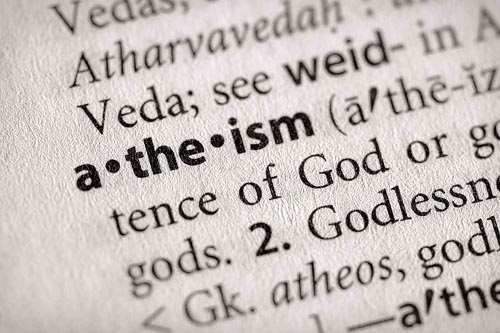
A recent study on atheism and agnosticism in the USA has established six categories of non-believers. The newly identified groups are Intellectual Atheist/Agnostics, Activist Atheist/Agnostics, Seeker Agnostics, Antitheists, Non-theists and Ritual Atheist/Agnostics. The study, conducted at the University of Tennessee at Chattanooga by Christopher F. Silver, a doctoral candidate, and project manager Thomas J. Coleman III, polled 1,153 American non-believers and personally interviewed 59 people for qualitative measures.
Out of the six categories, Intellectual Atheists/Agnostics (IAA) was the most prominent group, polling 37%. According to the researchers, the IAA includes those who actively educate themselves in religious matters and enjoy “discussing the epistemological positions related to the existence or non-existence of a deity”. The IAAs frequently seek information on topics related to religion from the internet, books and magazines, and often participate in discussions of belief virtually and face-to-face.
The second largest group with 22% of respondents is the Activist Atheist/Agnostics (AAA). As the name tells you, they actively advocate their beliefs and interests. Besides atheism/agnosticism, the AAAs are commonly also interested in other issues in the “atheist socio-political sphere”, such as LGBT issues, feminism or animal rights. The researchers indeed describe the AAAs as “not idle”.
The third most populous category is the Anti-Theist, polling 15%. The Anti-Theists are “diametrically opposed to religious ideology” and therefore quite assertive and even aggressive about their opinions on the matter. The Anti-Theist, then, is pretty much your “militant atheist”, possessing – in their view – “a superior understanding of the limitations and dangers of religion”.
From the remaining three categories, the Ritual Atheist/Agnostic (RAA) was at 12% the next largest group. The RAA “find utility in tradition and ritual” and for this reason they are often confused as being spiritual rather than non-believing. This is however not the case, as they do not believe in any deities. The RAAs find meaning and comfort in rituals associated with religions: a good example here would be non-religious – or cultural – Jews.
The last two categories both polled under 10%. Out of these, the Seeker Agnostics could be seen as run-of-the-mill agnostics: “They may call themselves agnostic or agnostic-atheist, as the SA simply cannot be sure of the existence of God or the divine.” Because of this, they keep an open mind in discussions that concern religion, and “recognise the limitation of human knowledge and experience”.
The last category, the Non-Theists, have little interest in religions or discussions of the topic. “Religion plays no role or issue in one’s consciousness or worldview; nor does a Non-Theist have concern for the atheist or agnostic movement.” The Non-Theists, then, just don’t care.
Whether or not classifying non-believers is useful is debatable. However, as studies on modern non-belief are not numerous, this one gives a rare and interesting insight into atheism and agnosticism, at least in the USA. For example, the role of university in developing non-belief is quite interesting: Silverman says: “College was certainly a huge theme that popped out in this. Quite dramatically, people would say, ‘Hey, I was a Christian going in the first year, after the second I was agnostic, and by the time I graduated, I said I was done with all this.’” Also, as non-belief and especially atheism, are still controversial topics in the USA, particularly in the more religious states, such studies can hopefully present non-belief in a new and maybe even more approachable light.
But, are the findings relevant here in the UK or elsewhere? As Andrew Brown says in his Guardian blog, Christianity is much less of a marker in most of European culture wars than in the American ones, so building one’s self-image around non-belief is probably less common here than in the US. Nevertheless, the study has been criticised for initiating “atheist sectarianism” (read the comments on the Guardian article), but also praised for showing that not all non-believers are the same. For the researchers, this was indeed one of the most positive findings of the study: “Fortunately, one of the many questions our empirical research was able to address was, ‘are all atheists angry, argumentative and dogmatic?’ Our results lead us to answer that question with a resounding ‘absolutely not’!”
So which category would you put yourself into? Let us know in the comments.

